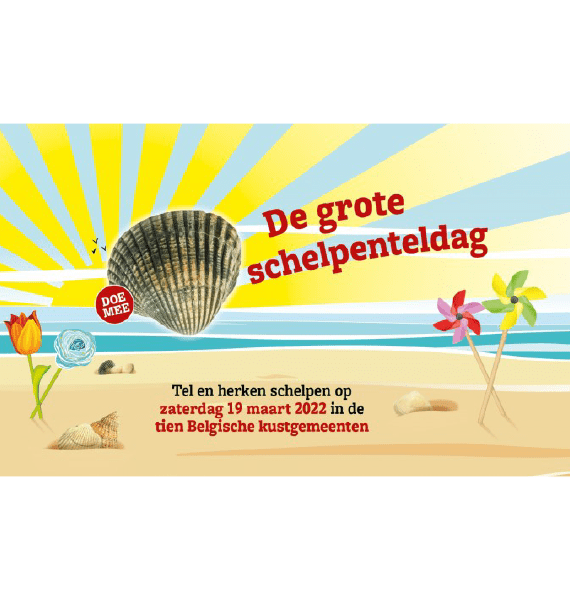5th edition of the Big Seashell Survey
Home | Events | LifeWatch Belgium | 5th edition of the Big Seashell Survey

All along the Flemish and Dutch coasts, 19 March 2022.
Who isn’t fascinated by shells on the beach? Picking up shells, admiring them and trying to find out the story behind the find. And if at all possible, to give science a helping hand at the same time. That is what the Big Seashell Survey is all about!
On Saturday 19 March 2022, the Big Seashell Survey will take place, as part of the LifeWatch Belgium programme. It is the fifth time this citizen science initiative has been organised. In each of the ten coastal municipalities, shell experts will help you collect and identify your hundred beach shells at the counting stations between 10 am and 4 pm. And if hundreds of enthusiasts do this, we all learn a lot more about these fascinating sea creatures. Experience or not, everyone can become a marine citizen scientist for a day!
For the first time this year, comparisons will be made between the shells found on Flemish beaches and those of the Netherlands. On the same day, the natural history museum Naturalis in Leiden will be holding a big seashell survey as well, on the beaches of the coastal province South Holland – as part of the event Leiden2022 – European City of Science. Are you also curious whether we will see big differences?
In addition, families with children can go to three provincial visitor centres (Duinpanne, Raversyde Anno 1465 and ZWIN Nature Park) for a playful introduction to shells (workshop in Dutch only). Afterwards, they will be fully prepared to collect and process a sample of shells at a counting station.
Find more information about this event on www.groteschelpenteldag.be (in Dutch only).
Subscribe now on the website of EOS Iedereen Wetenschapper and receive the newsletter (in Dutch only) with the necessary information and keep up to date on the results (registration is free and not obligatory).
The Big Seashell Survey is an initiative of the Flanders Marine Institute (VLIZ), EOS Wetenschap magazine, the Province of West Flanders, Natuurpunt, Strandwerkgroep, Kusterfgoed and the 10 coastal municipalities. Initiative within the framework of LifeWatch Belgium.